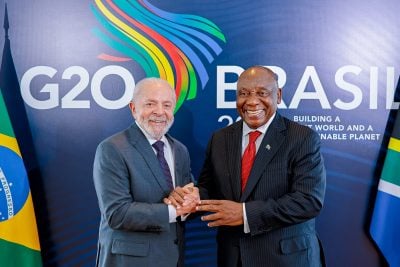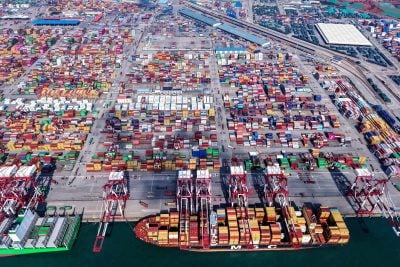India quietly buying its way into Africa
Collectively, the region that generates more global foreign direct investment than any other is Asia, irrespective of whether you measure annual FDI flows or historical FDI stock. Asia is the source of three quarters of all developing-country annual FDI flows, and in historical FDI stock terms the list of the biggest Asian suppliers of capital to Africa may come as a surprise.
Malaysia, for example, has a larger historical investment stock in Africa than does China – Malaysia’s stake was worth $19bn in 2011 (the most recent year for total investment stock figures). Another surprise is that the total investment stocks held by China and India are very similar, even though Chinese investments tend to attract far more attention. China’s Africa investments totalled $16bn in 2011, while India had invested $14bn.
China’s investment interest in Africa is well known, but what about India? In many ways the growing importance of India as an investment partner is one of the most interesting developments in the continent.
With every month that passes, India is getting more interested in Africa. Telecoms, consumer manufacturing, automotive and resources companies have all been targets in India’s drive to expand into the African economy. Long seen as the junior partner when it comes to Asian investment into Africa, India has in fact been quietly buying its way into every sector of the African economy.
Perhaps the Indian deal to gain most attention has been the acquisition of mobile phone businesses throughout the continent by Bharti Airtel, India’s biggest mobile network. In 2010 Airtel paid $10.2bn for the sub-Saharan and North African networks owned by Zain, and added to the portfolio last year by buying mobile businesses from Warid in Uganda and in DR Congo.
More gradually, Indian manufacturing companies like Tata, India’s leading automotive company, have been gradually building up their presence in the region – Tata is now manufacturing in 11 African countries.
These kinds of investments help confirm the perception that while China is mainly interested in using investment to capture resources, Indian investors are focused on value-added investments in manufacturing and services.
But as so often, the perception is not quite accurate: India is, in fact, heavily involved in the African resources sector. For example, India’s leading oil and gas company ONGC Videsh owns 25% stakes in the main production facilities in both Sudan and South Sudan, and in 2008 invested $200m in building an oil pipeline from Khartoum to the Red Sea, as well as having exploration investments in Nigeria.
Like China, India is largely dependent on imported energy, and India is consequently just as interested in African resources as its Asian rival.
Does this mean that India is overtaking China as Africa’s biggest provider of annual FDI flows? Some certainly think so: last year fDi Markets released figures that claimed that India had already taken top spot, in a piece beginning ‘India’s investment into Africa remains ahead of China’s’.
However, a closer look at the figures suggests the story is not quite so clear-cut.
But there is no doubt that the value of India’s investment into Africa is close to that of China – the figures on historical FDI stock provide much stronger evidence of that – and it also seems likely that the Indian share of investment will grow. After all, from an Indian perspective, Africa is the neighbour across the Indian Ocean, and trade and investment links go back to the 16th century.
Whether India’s growing engagement with Africa will ever deliver on Mahatma Gandhi’s promise is another matter. Gandhi lived in South Africa for 21 years, and once said “the commerce between India and Africa will be of ideas and services, not of manufactured goods against raw materials after the fashion of Western exploiters”.
So far, oil and diamonds and coal and steel have all proved to be just as attractive to Indian investors as ideas and services.
Want to continue reading? Subscribe today.
You've read all your free articles for this month! Subscribe now to enjoy full access to our content.
Digital Monthly
£8.00 / month
Receive full unlimited access to our articles, opinions, podcasts and more.
Digital Yearly
£70.00 / year
Our best value offer - save £26 and gain access to all of our digital content for an entire year!
 Sign in with Google
Sign in with Google 


